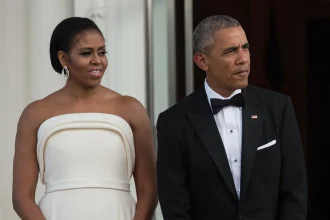Saudi Arabia has temporarily stopped issuing some types of visas to citizens of 14 countries, including Nigeria, Egypt, India, and Pakistan.
The move comes as part of new rules ahead of the 2025 Hajj pilgrimage.
According to Saudi authorities, the suspension affects Umrah, family visit, and business visas starting from April 13 and will last until the end of the Hajj season in mid-June.
However, the Saudi government made it clear that the new rules do not affect those properly registered for the Hajj pilgrimage. Nigerians and others who have official Hajj permits will still be allowed to enter the Kingdom for the religious exercise in Makkah and Madinah.
Officials said the suspension is to stop the growing number of people who try to perform Hajj using Umrah or visit visas, which often leads to overcrowding and safety problems.
Speaking to ARY News, Saudi officials said:“The suspension of Umrah, business, and family visit visas is aimed at preventing unregistered individuals from attempting to perform the pilgrimage.”
In 2024, at least 1,301 pilgrims died, mostly from heat-related illnesses. Many of those who died did not have official Hajj permits, making it hard for them to access proper facilities like air-conditioned tents and hospitals.
Also, Saudi officials are worried about people using business and visit visas to enter the Kingdom and work illegally, which affects the country’s labour market.
The Saudi Foreign Ministry explained that the new rules are meant to improve travel and safety during the Hajj:
“Individuals found to be staying in the Kingdom illegally may face a five-year entry ban.”
Despite the restrictions, Umrah visa holders from the affected countries will be allowed to enter Saudi Arabia until April 13.
The countries affected by the visa suspension are:
- Nigeria
- Egypt
- India
- Pakistan
- Bangladesh
- Indonesia
- Iraq
- Jordan
- Sudan
- Ethiopia
- Tunisia
- Yemen
- Algeria
- Morocco
Under Saudi Arabia’s Hajj quota system, each country is given a limited number of slots for pilgrims. But because of the high cost of official Hajj packages, some people try to use other means to join the pilgrimage.
Saudi officials warned that only those with proper Hajj permits will be allowed access to full services during the pilgrimage. Unregistered pilgrims risk being exposed to extreme weather, lack of medical support, and being denied access to Hajj facilities.
The Kingdom says these new measures are necessary to protect lives and ensure a smooth Hajj season for all pilgrims.











